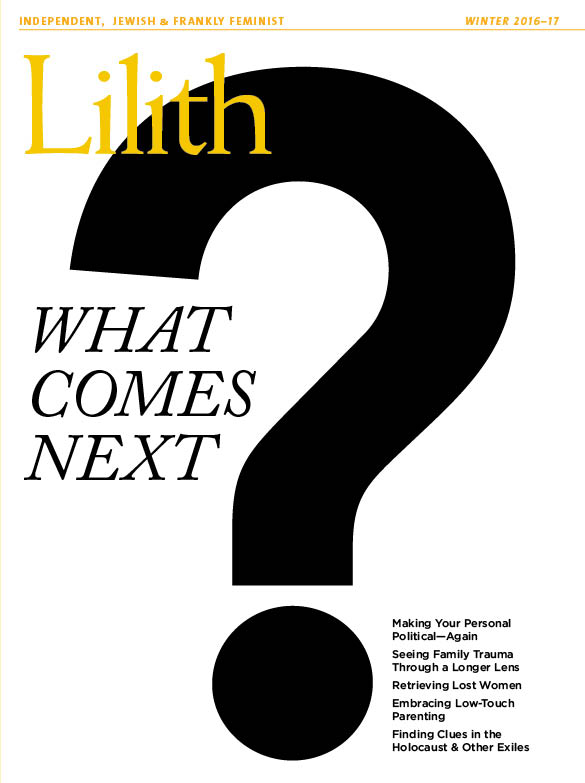from the editor
I recall vividly both the JFK assassination and the attacks of 9/11, and a good deal about the emotional response to our current moment feels eerily similar, though no lives... Read more »

We have gathered here are from many faiths, cultural and ethnic traditions and walks of life. We have come as Americans, especially as American women. In our diversity – we... Read more »
Perspectives on the Women's Marches from around the world.
Joan L. RothWashington, D.C. Shira GorelickWashington, D.C. Amy StoneWashington, D.C. Phyllis Holman WeisbardMadison, Wisconsin Laura BlattSanta Rosa, California Miriam Bat-AmiWashington, D.C. Kathy MazurKnoxville, Tennessee Alice Sparberg AlexiouManhattan, New York Carol... Read more »
I fly through midtown, past rows of cops. There is a whole wall of them in front of Trump Tower, and I stop to scan the building, which curves like a... Read more »
On a blustery day in Sedona and the Verde Valley in Arizona, Rabbi Alicia Magal delivered these remarks to the hundreds of assembled marchers. Look around. In this challenging weather perhaps... Read more »
It all started with an email, as many stories seem to these days. “I’m going to the Women’s March in Washington,” I wrote to my family-of-choice, the 60-something women friends... Read more »
A millennial mother puts forth the radical idea that parents are people, worthy of a life away from their progeny. Bonus: better for the kids, too. Check out her four-point manifesto.
Rabbi Lappe teaches Talmud to the 99%—Jews who’ve never had a chance to learn Talmud in its original Aramaic and Hebrew. Even people who don’t know the Hebrew alphabet are welcomed at svara, her inclusive academy.
Meet the Roman powerhouse behind the first-ever translation of the Talmud into Italian. And the Italian government picked up the tab.
Her parents disparaged everything about her that they construed as Jewish, so Fieldsteel was stuffed, starved and shamed. Now in her 70s, she tells what helped.
A tech exec, Hepps becomes obsessed with musty paper archives in a small Pennsylvania town. Though a feisty feminist, clues to women’s lives elude her. Why?
She pieces together the fragmented stories of her Holocaust-survivor parents by cataloguing their tender habits of preservation. Everything —including the carpeting—falls under Sky’s careful scrutiny.
In 1915, Mason’s Bukharian mother was forced from Jerusalem by the Ottoman rulers. Three generations recall the fragrant recipes of this history, and its tremors.